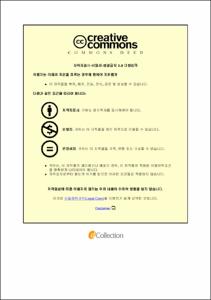양계초의 작품에 나타난 조선 망국의 원인에 대한 비판적 이해
- Alternative Title
- The critical understanding of Liang Qichao's Work on the cause of the Joson Dynasty's fall
- Abstract
- Between the year 1860 and 1910 Korea’s Joseon dynasty was gradually annexed by Japan. In 1895, Joseon had hoped to secede from the 300 years suzerain-vassal relationship it had with China to become an independent state. But instead, Russia and Japan at the same time re-occupied Joseon before finally in 1910 Japan completely annexed it. The final demise of Joseon dynasty, known in literature as known as the demise Joseon, caused great shock to China. At that time, Chinese intellectuals who experienced such a demise of a nation like Joseon paid a big attention to it. One of these Chinese intellectuals, Liang Qichao, wrote more than 10 books about the demise of the dynasty. He also wrote extensively on the annexation of Korea by Japan and analyzed extensively the intricate reasons for the final annexation of the dynasty. Qichao’s works later had great influence on the future Joseon progressive intellectuals. But then they were not able to produce a single on their own. So, this thesis therefore aims at investigating the critical reasons for the demise of the Joseon dynasty using the works of Liang Qichao. This work is organized in 8 chapters. First chapter is the introductory chapter. The second chapter discusses Liang Qichao’s life and career. The third chapter details the process of demise of the Joseon dynasty. The fourth chapter discusses the intrinsic reasons for the demise of the Joseon dynasty and analyzes the intricate issues regarding the suzerain-vassal relation between Qing and Joseon dynasty. The fifth chapter discusses the Confucian and indulgent theories of national subjugation. The sixth chapter examines the criticisms in the newspapers focused on Japan’s annexation of Korea.
For Liang Qichao's analyzes also has some the critical point on the Joseon dynasty's fall. the first point is his assessment for the process of demise of the Joseon dynasty was all subjected. The next point is friendly toword Qing's the Queen's Min was not included by these criticism .
【Keyword】Liang Qichao, Joseon dynasty, Suzerainty, Confucianism the critical point
- Issued Date
- 2016
- Awarded Date
- 2016. 2
- Type
- Dissertation
- Keyword
- 조선문제 양계초(梁啟超) 종번 관계 일본 유교망국론. 한계점.
- Publisher
- 부경대학교 대학원
- Alternative Author(s)
- GUO JIAN
- Affiliation
- 부경대학교 대학원
- Department
- 대학원 신문방송학과
- Advisor
- 김영환
- Table Of Contents
- Ⅰ. 서론 1
Ⅱ. 양계초의 생애와 사상에 관해 4
1. 양계초의 생애에 대해 소개 4
2. 양계초의 저서와 조선인의 수용 7
Ⅲ. 일본의 조선 병합 과정에 대한 소개(1876~1910) 9
Ⅳ. 조선멸망의 원인에 대해 분석 14
1. 양계초의 조선멸망의 원인에 대해 분석 14
2. 조선의 내부정치에 대한 비판 16
가. 실덕과 악정 17
(1).대원군에 대한 비판 17
(2).고종에 대한 비판 18
나. 양반, 지식인 계층의 매국행위에 대해 비판 21
다. 국민성에 대한 비판 23
Ⅴ. 조선멸망의 외부적 원인에 대한 인식 26
1. 중‧한 양국의 종번 관계의 전변 26
가. 중‧한 종번 관계의 유래 26
나. 청 정부 종번 관계에 대해 강화 정책 31
다. ‘독립 시기’ 청 정부 조선 문제에 대해 주목 38
2. 조선의 ‘화이관華夷觀’의 변천과 정치개혁 41
가. 민씨 세력의 개혁한 배경 41
나. 민씨 세력의 개혁정책과 개혁 과정 43
다. 개혁의 한계 50
Ⅵ. 근대 조선과 유교 망국에 대한 인식 53
1. 유교 망국론의 출현 53
가. 유교 망국론을 주장한 배경 53
나. 유교에 대한 비판-국권과 민권 54
2. 문약 망국론 58
Ⅶ. 신문에 나타난 조선 문제에 대한 언론 61
1. 근대 중국 신문은 조선 망국에 대한 언론 61
2. 근대 조선 신문은 국권 상실에 대한 언론 62
Ⅷ. 결론 67
참고문헌 69
Abstract 72
- Degree
- Master
- Files in This Item:
-
-
Download
 양계초의 작품에 나타난 조선 망국의 원인에 대한 비판적 이해.pdf
기타 데이터 / 4.74 MB / Adobe PDF
양계초의 작품에 나타난 조선 망국의 원인에 대한 비판적 이해.pdf
기타 데이터 / 4.74 MB / Adobe PDF
-
Items in Repository are protected by copyright, with all rights reserved, unless otherwise indicated.